|
Welcome to Secrets of Organ Playing Podcast 549!
Vidas: I'm so excited to be able to talk with John Higgins now from Australia, my old friend, and he's been on our show for maybe 3 times before so I'm really delighted we can connect because John has some news to share. Last time we talked it was a while ago and he's very busy with raising a family - he has 3 sons. And also he's been working in a church, playing church music and also doing all kinds of church music related things which we will talk about today. So thank you so much, John and welcome to the show! John: Thank you so much, Vidas and it's such an honor to be on this podcast and I'm so proud to be one of your students for over 8 years now. V: I remember you were in Vilnius and recently I was looking through all the photos from the past and found the one with you playing our church organ and you together with me and Ausra and we all spent some time together. Your flight was delayed, it was a big adventure. And after practicing for 7 years, you finally got to play a recital on the largest pipe organ in Lithuania. That was quite an adventure! J: Yes, it was one of the most amazing experiences of my life and such a wonderful opportunity. I can't thank you enough for this. I'll never forget it. I feel like the organ is part of me, and you and Ausra are such a huge part of my life as well. V: What happened afterwards, John, after you came back to Australia? I know you have very dangerous bushfires in your area and I hope firefighters will stop them and that you will get some rain soon. That's my hope for New Year. We're hoping for much milder climate. So could you share, John about your life after you came back to Australia? What have you been up to? Listen to the conversation Related link: Hidden Treasures, John Higgins' YouTube Channel: https://www.youtube.com/channel/UCrikng_XqeuuLbV2mo3zfig
Comments
This is the ending of the episode 377 of Secrets of Organ Playing Podcast where I talk with John Higgins, the organist of St Andrew's Presbyterian Church in Morewell, Australia. If you haven't seen the beginning, check it out here. Here is the 2nd part too.
John: Thomas Heywood is the most famous Australian professional concert organist touring around the world. The two DVD’s that he has made, he spoke about the pieces before he played them, and as a listener I found that was very engaging and added more contest and I thought I would take a risk and have those introductions before the pieces and I hope that makes it more meaningful for the listeners. Vidas: You’re exactly right. A simple DVD where an organist just plays the pieces through like in a recital setting, would be fine, but there is not human-to-human connection without introductions. Of course you could write the text in the linear notes, but seeing you talk about them, those pieces, and your experiences and what you suggest listeners listen to when you play, right, sometimes. It gives an enormous, I believe like warm feeling, human connection, basically. And I remember when you played here in Vilnius, you also introduced those pieces in a similar manner. I translated them, right? And it was really nice. People connected to you, and actually you went downstairs to take your bow, right? And one person from our studio, Unda Maris Studio, gave you a box of sweets, right? And a few days ago when we received you package of DVD’s, you wanted us to give one copy of the DVD to that organ student, right? His name is Marek by the way, and he travels through several European countries after his favorite organists. He tries not to miss any organ recitals. Not only in Vilnius but any other cities in Lithuania too. But also he travels to Latvia, to Poland and sometimes even to Germany. So Marek will be delighted to get your DVD. Also I’ll give one copy at your request to Paulius Grigonis, who is the organist of St. Joseph Parish here in Vilnius. He is my best friend and colleague and he will be appreciating it very much. By the way, Paulius is also participating in our Secrets of Organ Playing contest. So John, I know you have Steemit account, and are planning to do this, so wonderful will be for our little community competing from around the world too. And then the next copy is already on it’s way to England to Mindaugas, our former Unda Maris member, who left us because he’s now working in England, and he also has experience in organ playing and he appreciated you play very much in Vilnius. So he will be enjoying this too much, your playing very much. So thank you so much John, for your generosity, for sharing those ideas about you recording this DVD and wish that you do the second version, a second volume of your DVD in the not to distant future. J: Yes. Thank you so much. I really enjoyed my trip to Vilnius and meeting some of your other students. The profound impact on my life, and to friendships were formed there that were exciting and it’s a real privilege for me to share the DVD with you and the other students. V: Wonderful. What would be your last advice for organists who would like to record a DVD? J: I think it’s the most important thing is to understand why you want to do it. And I think I shared with you once before that I was fascinated that I found this seminar on Youtube from a famous opera singer. And they said that the turning point of their career was when somebody said to them, that you need to be convinced, that somebody should pay 50 dollars to come and listen to you sing. And at first this opera singer was very apprehensive and full of self-doubt and thought, "I don’t know why people would pay that much money to come and see me." And they went through quite a journey to understand, why were they going to sing. I think it would be great for any other organist to think about, why do you want to play and why do you want to record the DVD? Once you understand what those key goals and aims are, and that will drive you through the whole process. V: Mmm-mmm. J: If you’re not sure about it or if you’re doubting then you give up cause it takes you so far out of your comfort zone. V: Well exactly. You have to answer this deep why question. The deep reason behind you are actually doing this project. And if you’re not sure then in a deep struggle when the darkest hours will hit you, obviously you will give up probably. So I’m so glad that you persevered and you continued to play, even though it took many hours to record, but it’s a first DVD, your first achievement. The second I guess will be a little bit easier, right? J: Yes, and I think if you have that faith in why you’re doing it and that you’re doing it the right ways, that there’s so many possibilities that come out of this exercise, that regardless if you don’t—even if you make a financial loss, the benefits to you as a person, what you learn and the new skills you develop, opportunities that might open through other faces, or to do further recordings. I’m so humbled because it’s only been, it’s over four weeks since I released the DVD, and I’ve already sold nearly 50 copies, and I’ve given nearly 30 copies away in gifts and presents, and they were for people who really wanted them. It wasn’t just giving it to them as a token to people who have been very interested in my musical journey. My initial run’s a hundred copies, and only twenty left... V: Mmm-hmm. J: full weight. I find that’s very humbling. V: And it’s also very good promotional material, right? Because when you apply, for example, to some organ recital series, or organ festival in Australia or abroad, it’s best to send them some samples of your work. It doesn’t have to be a physical DVD or a CD these days, right? It can be a link to your Youtube channel, for example, where you would give them a sample of your work or the best pieces that you have recorded. And since you have released entire hour of music, you can pick and choose or put all of them in on Youtube, or just part of them, as an example of your work that is, really, I think, number one reason why people should record themselves. Not necessarily to have this physical DVD but to have an archive of their work. J: Yes. And that’s one of my next steps I need to complete fairly quickly, is having, creating my own Youtube channel and website. That’s something that I’ll be working on this year. V: Mmm-hmm. Great! And John, if people are interested in getting to know you a little more, and even getting your DVD’s, where and what’s the best way to reach you? J: The best way would be by email, and I’m sure that you’ll be putting a link in the podcast to my email, and it’s [email protected]. V: Mmm-hmm. J: I also have a Facebook page under John Higgins. I don’t have an active presence on there so email is probably the most effective. V: Mmm-hmm. So yes, as you mention, your Youtube channel and website could be probably your next, even before you record second volume, probably. It’s good to have a place where you could have your presence online. Not necessarily only email, but people would look at your photos, right? At your resumé, at your recitals schedule, or maybe even your blog. You could start writing about your day, about your, documenting your day. And it doesn’t have to be just organ, right? Because organ is just a part of your activities. Wonderful! Thank you so much, John. It was delightful to talk to you, and I hope people got the message that you were trying to transmit, that first of all, it’s worth doing—recording your own DVD. But before you do it, you have to answer the question—why! J: Yes. V: Mmm-hmm. Okay, and I’m delighted to talk to you and I’m sitting now in my church and I’m ready to go and practice for my next recital which is coming up in about, less than two weeks. And I hope you will practice also something too. J: Yes. Yes, I’m busy practicing this week, ready for the church service on Sunday, and I’ll also been picking out the new records file that I’ll lend you. And if anyone would like a DVD, it would be my pleasure to send it to them. V: Excellent! So just email John and he will write to you very gladly. J: Thank you so much, Vidas. V: Have a wonderful 2019, creative, healthy for your entire family, and talk to you next time. J: Thank you so much. Have a good day! V: Alright, guys. This was Vidas. J: This was John. V: And remember, when you practice… J: Miracles happen
This is the continuation of the episode 377 of Secrets of Organ Playing Podcast where I talk with John Higgins, the organist of St Andrew's Presbyterian Church in Morewell, Australia. If you haven't seen the beginning, check it out here.
John: Because there were so many details that we needed to get right, learning how to move my hands and move them at the right time. For example the first 30 seconds of the DVD out in front of the church we had to do that 9 times to get it right and I said to my cameraman I need your help because I’ve never done this before and he was really fantastic and he said John just relax, every time we have a new journalist at the news station they all have the same problem you have speaking to a camera because it was a rather strange experience that when you play in public a recital your very happy to be there and very happy to give the gift of music to the people and you draw energy off of them and you want to be your best for them but playing in an empty church and speaking to a camera without listeners. And my cameraman Cody was absolutely superb. He coached me through it and we’d do a couple of run-throughs and then we’d look at the footage together and he’d say “See how you stopped smiling there or see how that spot there needs to have more energy or he’d stop me and he’d say “Say it like you really mean it, not just going through the motions." Vidas: Right, right. This is really important to understand because when we rehearse sometimes we forget that we have to do our best, right? And by this I mean that we have to play like it’s maybe our last try, the last time we are playing the organ and sometimes we don’t remember this and think “Oh maybe next time I will get it right” which of course is not necessarily true, right John? J: Yes, that’s right. Another difference is that initially I was trying to read from a script or repeat it from memory because I wanted to say exactly the right words. After a few tries that wasn’t working for me so that was quite a lesson. Sometimes you might have a plan of how you want to do it but sometimes you have to be flexible and so we decided that I know the pieces well and I know the history well, I know it word by word. Just relax and have the conversation if it was with a friend. And once I started doing that the quality improved dramatically. V: Exactly and I think I’d like to ask you about “What was your worst moment in the entire recording process? What was your lowest point?” J: I think there were two lowest points. The first lowest point was when I was listening to all of the recordings of the music and sometimes it took 3, 4, 5 times playing through the piece and I still wasn’t happy with it. V: Umm-hmm. J: And that was when I listened to all of those run-throughs afterwards I was quite discouraged because I thought “Why can’t I get this right or I think when I recorded it that sounds OK but then when I listened to it afterwards it appeared I made a mistake here or a wrong stop change here” so that was difficult and then the other most difficult part was to record the pieces. V: Umm-hmm. J: Because I was running out of time and I really wanted to have an image done. My friends who I trusted said “I really think you should do it again” and that cost me more money to pay the cameraman again and also mentally I sort of closed the chapter. I thought “I finished all the recording, that’s it” and I just wanted it done and it was quite painful having to go “well you haven’t got this right and you have to try again.” V: Umm-hmm. Yes, it’s really discouraging to see those mistakes when time is of the essence, right? You are paying for the cameraman’s probably time and you try to do everything as fast as possible and as best as you can but those mistakes creep in and you have to repeat and repeat sometimes many times. As you say sometimes two or three hours are needed in order to create a clean copy of 15 minutes of music, right? That’s a process. Do you think John, that in the future you will be able to make a recording faster? J: Oh yes, very much so. The lessons that I’ve learned that when I do volume 2, and even that was quite a difficult decision because when I was designing the cover and the artwork DVD case do I just leave the title on or do I put “Volume 1” because as soon as I put “Volume 1” that implies that there will be a volume 2 and so I thought “No, I need to be brave and commit to Volume 2.” I then have to commit to the date that I’m committing to volume 2 and I’m sure that that will be much more streamlined and I’m quite sure that it will be even better. V: Umm-hmm. Can you tell us what you played in your DVD so that our listeners would know. J: Yes, so I played the Toccata by Bach in D Minor, Prelude and Fugue F Major and G Major from 8 Little Preludes and Fugues, "Ich ruf zu dir", a beautiful prelude by Bach, then I played “Largo from Xerxes” by Handel, Priere a Notre Dame by Leon Boellmann, and then two my own improvisations on Judas Maccabeus which is the hymn tune Thine Be the Glory and Ein Feste Burg which is hymn tune “A Mighty Fortress is our God” plus Festive Trumpet Tune and Nimrod from the Enigma Variations, God So Loved the World from Sir John Stainer’s The Crucifixion, and O Savior of the World by Sir John Goss. V: Umm-hmm. Wonderful program and I also have to add that you managed to introduce each piece so gracefully and listeners and people who will be watching this DVD will be enjoying your speeches before the pieces a lot. J: Thank you very much. Very kind of you and that was an interesting decision how to manage that practically because there are many professional organists who make DVD’s and they tend to have each piece played one after another and then a printed section on the DVD they’ll have maybe 10 minutes talking about their program or the organ and the main DVD jumps from one piece to the next. (This conversation continues in the next episode)
Vidas: Hi guys, this is Vidas, and I’m so delighted to be able to start our 377th episode of Secrets of Organ Playing Podcast. And, on the other end of the line is John Higgins, from Australia. He’s the organist of Morewell Presbyterian Church in Australia. And he visited Vilnius and our church some months ago, maybe last year in the Spring, I believe in April. And he played a wonderful organ recital in our church. I have to emphasize that John is one of the first online students, and has been with us since, I believe, the beginning of 2012. So thanks so much, John, and welcome to the show.
John: Thank you so much, and thanks for your kind words of welcome. V: And today, I have to remind our listeners that John has been a guest on our podcast conversations a number of times, and today we’ll be talking about his newest release of a DVD. He recorded and released a DVD recording, which Ausra and I gladly saw last weekend, and it has been recorded in his church, in Morewell Presbyterian Church. Saint Andrews Church it’s called, right? So wonderful, I think it’s an achievement in itself to publish this DVD, so we’ll be talking a little bit more about your process, about your struggles. Right, John? First of all, how did you come up with the idea to publish this DVD? J: Many contributing factors. And, I mean, none of this would have even been possible without learning how to play the organ, first, and I’ve been on such an incredible journey, being your student, and learning over the Internet, and apart from learning how to play, also having the belief and bravery to try to make the DVD, because, I’ll say one of the hardest actions I had to do was doing this recording for other people. And then a number of other things came together that I would say were providential, that we had wonderful historic organ in our church, which I’m privileged to play regularly, and I made a friend who works in local TV channel in our area. And so, he had all of the expertise and all the equipment, such as professional TV camera equipment and microphones, so it seemed to me that all the pieces of the puzzle came together at one time. V: Yes. Wonderful. You know, not too many organists do this! They continue to play the organ, sometimes play recitals, but recording a DVD or a CD, for example, is really a big achievement, I think, because every note that you record is like an evidence! It will be there with you 10 years after this recording has been published—maybe 20 years, maybe for your entire lifetime. Right? So it’s wonderful that you committed to this. Was it very strenuous work for you, or did you record it in a few sittings? J: That’s right, it was a very time consuming process, because there were so many details that I didn’t consider, that I had in the back of my mind that the hardest challenge was going to be playing the music, and yet I found that I was stretched and challenged in so many other areas of my life and having to learn new skills for the first time, that, for example, learning how to speak to a TV camera, learning how to move your hands at the right time, how to walk slowly and leisurely, and then all the video editing process, how that’s done and the art work design, and then dealing with the DVD manufacturing company and making sure that they made it exactly right, and checking it at all times. There’s a huge amount of work and lots of things to manage that I had thought about. V: Right. So, I’ve seen you play in Vilnius, and I have seen your DVD here in our living room with Ausra, and we were so impressed that a person who has started playing the organ literally 7 years ago could do things like that on a large 3 manual organ in Vilnius, but also on your two manual instrument in Morewell. We were so impressed, and you are like a living example of what a person can achieve regardless of age. It doesn’t matter when you start. Right? It doesn’t matter that you didn’t start at six years old or seven years old like famous virtuosos would start. It doesn’t matter that you didn’t have a formal musical education. “Where there is a will, there is a way.” I believe this kind of saying fits you very well, because you had a passion, you had a dream, and you persevered and you saw it through. J. Yes, thank you! Thank you very much. That’s very kind of you, and as I said at the start, I would not have been able to achieve any of this without the teaching and important coaching you’ve given me online, but I think even more than the coaching is the challenge and inspiration, because I think these experiences have been one of the bravest things that I’ve ever done, because there have been so many self doubts. For example, when I did the initial recordings, I played the music over about two days, and then I did the introductions of the DVD for each of the pieces at the end of that recording, and that was a big mistake, because I was so tired after all the playing, that I was very flat, I didn’t have energy to teach about pieces to the camera, and I took a copy of the footage away and started looking at it, and I looked at my playing and I looked at the teaching I was doing, and I thought, “oh, maybe I should quit this right now. It’s no good.” And I had some of my very close friends have a look at the initial footage, and they said, this doesn’t look like you. You’re not smiling, you don’t have energy like you normally do when we speak to you. So, then I had to spend about nearly two weeks agonizing over what I was going to do, and I thought, “Do I just push forward with this, and what it is is what it is, or am I going to strive for excellence?” And even though I’ve made a bit of a mess of that, had another go. So, I’ve had to pay quite a bit more money to the cameramen to do another recording session. And in the introduction to the church and pieces of 15 minutes it took more than three hours of recording to get 15 minutes. (The conversation continues in the next episode) This is Part 3 of our conversation with John Higgins, the organist and mechanical engineer from Australia. Listen to the audio version here. Here are Parts 1 and 2 if you missed them. The sound quality isn’t great but this is the best I could do while cleaning up the audio file.
V: Was it difficult for you to depress the keys? This organ is notorious for its heavy action. ...Or not? J: I can tell you it was a massive relief, when I first sat down and played one note. I was like, “Ahhhh! It’s gonna be okay.” And from that moment I knew it was gonna be okay, because I knew the reputation of the organ, and how heavy it was; and I was quite concerned. For 2 months before I came here, I’d been playing Hanon exercises with full organ at my home church. So, my home church has a mechanical-action organ, and I would say that organ has the heaviest action I’ve played in Australia. And I’d couple the swell to the greats (only 2 manuals) and pull out all the stops--which is quite harsh to listen to, on the ears!--and I’d play Hanon exercises on full organ. And I think that’s what got me through. V: I see. That’s a clever strategy, right Ausra? A: Yes, it is. I think it helped you a lot. V: I would probably use organ couplers on a different organ, but not necessarily all the stops--maybe I would use just the flutes. A: And it still has a different touch. V: Really? A: Yes, even at our St. John’s Church, yes. If you will play that C with the Principal 8’, the keys will be lighter because the air compression is different. J: I especially notice on my home organ, particularly the large 8’ stops are, I think, maybe the towers have more area, so there’s more flow of air into those big open diapason parts, you should really feel the difference between playing like, a Salicional, a string-scaled versus the open diapason. V: And of course, a few weeks before John came here, the organ suffered a little bit of my adjustment. I had to make the springs harder, or stronger, right? On 2 keys in the middle of the first manual--E and F. Did you notice that? J: No. V: Good, because later I relaxed them a little bit; because to play, it’s a very uncomfortable and uneven keyboard. Because the cipher was taking place, and the only thing I could do or could find to do to help the springs make wider, just a little bit. J: Yes. V: And that fixed the problem, at least temporarily. But Ausra was playing there, the E♭ Major Prelude and Fugue by Bach, BWV 552. And she got this organ when the springs were very very tight, at that moment. It wasn’t a good feeling, right Ausra? A: Yes, it was a bad feeling. J: I found that Manual 1--the bottom manual--I found it was quite beautiful to play: I found it was firm but very responsive, and I felt very connected to the sounds. The second manual, which is the swell/closed manual--the keys felt like they had quite a lot of spring; and when you pushed it down, it wasn’t just initial resistance and then it would go easily--you had to push firm right to the bottom. V: Because they have 2 levels of springs, one on the bottom and one on the top. Because they have 2 winches. J: Yes. V: So, stops you control on the LH side are on the upper winches of the second manual, and stops on the RH side are controlled from the windchest on the lower level. So that’s why they’re difficult to depressed. Not a very pleasant manual, actually, to play virtuosic music. What about this third manual? Did you like it, the lightness of the touch? J: Yes. That was. Overall I really enjoyed the experience of playing the organ. V: You said the pedals were easy to depress, right? J: Yes. A: I think that the audience loved your concert. J: Thank you. A: And loved your speech, too. I think you connected very well with them. V: And I translated John’s words to Lithuanian. And later, after the last piece, John came down to bow to the audience, next to the people, and then he talked a little bit with the people. And one person got John’s autograph, right, on his program notes; and a second person gave John...candy, right? A: Chocolate. V: Or a chocolate box. J: Yes. it was very touching. I think there were about 50 people, which is quite a good crowd--that’s quite a large crowd for an organ recital. A: Yes, it is, especially for a Saturday night in Vilnius, when there are so many other attachments and events going on. J: I found I was very humbled and very touched, that even though maybe many of the people didn’t speak English, it was amazing to feel that I could communicate to them in music--that we all speak the same language of the music. And when I came downstairs from the organ loft to the exit of the church, I wanted to shake everyone’s hand to say thank you as I left. And you can tell so much from how people applaud and how they shake your hand. And I felt very honored; it was very special. People appreciated it. And I hope that in some way I could touch them and inspire them. V: Wonderful. So John, what’s next for you? Do you have plans for your next recitals? J: So, I’m very excited that I’ve been asked to play the Nine Lessons and Carols at our church this year before Christmas. V: Uh-huh. J: And that’s the first time I’ve played for a big Christmas service. I’m very very excited about that. And I’d like to learn “In Dulci Jubilo” by Bach as the postlude--I’ll have a grand piece to finish with that’s appropriate for Christmas! And I’m looking forward to studying that piece for the next few months. And I’ve also had a dream for a few years to record my own CD--not really for making money, but so that family and friends can play the CD and enjoy listening to some of the music. And then, if I ever go to other concerts and play, then sometimes people like to buy a souvenir afterwards. V: Ausra, don’t you think that would be a great gift? A: Yes, it would be, yes. I think that would be wonderful. J: So perhaps you could take this opportunity to give me your advice, seeing that you and Ausra have recorded some very special CDs that have then given you an invitation to play overseas--at St. Paul’s Cathedral in the UK, and at Notre Dame in France. V: Yeah. That can be like an audition for you, to collect your best performances in one place, right, and release them in public, for public viewers--either as a gift or for sale. And when you travel, for example, overseas, you could bring the box of CDs with you and sell them afterwards. People who like your concerts are interested in having some of your music, too. J: So do you have some advice for me--how would you prepare for CD recording, and what things happened that you learned during your recording that is quite different from playing a recital? V: Well, that’s probably a topic for the next conversation, right John? J: Yes. V: Because we are now arriving at the town of Trakai, about 30 km southwest of Vilnius, where there’s a medieval castle from the 15th century, right Ausra? A: Fourteenth. V: Fourteenth century, actually. So this was one of the historical capitals of Lithuania, right? A: That’s right. V: There have been 3: Kaunas, Trakai, and Kernavė. And it’s also a tourist visiting site, because it’s a beautiful lake surrounding the island of the castle, and it also has a very old Baroque church, where we’re going now to find a place to part. Even if it’s on Sunday, there are lots of people. Even though it’s in early spring, visitors are starting to come and enjoy the medieval culture. By the way, before we end this conversation, John, what do you think about Lithuania so far? J: There’s a sense of history here that is very touching; and things that I’ve never seen before; and very different and beautiful architecture. And I appreciate how many people speak English--that has helped me out a lot. And it’s a lovely country. V: Well exactly. People can be friendly here, sometimes not so friendly, right? It depends on whom you approach. In front of us, we’re approaching this church--a very old church, right? I think it’s sort of Baroque. And now we need to park somewhere. So thank you guys for listening, we hope this was useful to you, right? This was Vidas. A: And Ausra. J: And John! V: And remember, when you practice… A: Miracles happen... J: ...And you might end up playing a recital in Australia! [This is the 2nd part of our conversation with John Higgins, organist and mechanical engineer from Australia who came to Vilnius to play a recital at Vilnius University St John’s church. Listen to the audio version here. Here is Part 1 if you missed it. The sound quality isn’t great but this is the best I could do while cleaning up the audio file.]
Vidas: Can you remind us, how many years have you been improvising? Two or more years? John: Probably three. V: Three. And you been playing the organ for seven years, right? J: Yes. V: So, we can quite safely say that you are a seventh grader when it comes to playing the repertoire, and only the third grader when it comes to improvising, right? So that’s, that’s normal if you feel more insecure when you are improvising or more nervous because you haven’t spent, you know, that much time while playing your own creations. And it’s normal to prepare, you know, diligently, music that you improvised almost to the point of memorization sometimes. We all did that with the beginning, and in it’s initial level, and after that you kind of want to break free and create on the spot. But that’s the next level, I think. Right Ausra and John? Ausra: Yes, I think so. J: I would say that when I play the improvisation at time, I would say I’m less nervous playing them then playing pieces because I feel in control and it’s my own creation so it’s familiar to me. To be honest, I was a little bit disappointed in my improvisation on ‘A Mighty Fortress is Our God’ because there is one part I played the chorale theme with double pedals to the melody on the pedals with both feet playing parallel octaves and I had that mastered very well on organs with radiating concave pedal boards so it’s very comfortable with that. But this is the first organ I’ve ever played with a flat straight or flat parallel pedals, and particularly on the edges of the pedal board the spacing between the pedals was so much bigger than I’m used to and I played, I felt like I played poorly with my pedal work. That’s I think partly because of the limited preparation. A: I think you did a great job. It’s unbelievable that you could only rehearse for one day on this organ and your recital was right after such a long flight. V: Because normally people who come from abroad to play at St. John’s, they come on maybe Thursday evening and spend the whole Friday and Saturday rehearsing. So maybe they can get four rehearsals total, two-three hours each, you know. That would be plenty. But for you it would be more like four hours total. And considering that you are still learning you have to play many, many organs and only prepare for this recital in your mind, right? Both having registration and stop layout. I think you did better than could be expected. Right Ausra? A: Yes. And you know, yesterday during recital I thought that John is sort of a living example of someone who’s doing those things that we are talking so often about on our podcast that they actually work, if you apply in your practice, mental preparation. When you have no access to a real instrument or when you travel. And John told us yesterday that he practiced mentally at the airport while waiting for the plane to go to Vilnius. And it’s just amazing. J: An experience that helped me was, in late, late last, no it was early this year, January 2018. A very good friend of mine who has other friends in the organist world gave me a wonderful opportunity to come and try out the organ at the Melbourne Town hall, which is one of the largest park organs in Australia — four manuals, and I think nearly nearly 130 stops, and also the Saint Paul’s Cathedral in Melbourne. A beautiful organ there, four manuals and about fifty stops, fifty or sixty stops. And there was nobody else at the Melbourne Town Hall, just me and my friend. And I played through quite a few pieces that I played in my recital. And afterwards my friend said to me, ‘I’m surprised how well you picked such good stop selection and it sounded so great and balanced, even though you never played this instrument before’. And I told him that I downloaded the stop list off the internet and spent quite a few hours of time in the kitchen studying the stop list and thinking, ‘what stops should I use, to get different sounds?’. And that experience in January prepared me for this and helped me to go to a more professional level that as you saw I had, had two or three different stop options, so suggested the organ. V: Yeah. J: Maybe you could tell our listeners about what I showed you. V: John had prepared a list of registration changes on separate sheets of paper, like five sheets of paper—full stop lists and full stop combinations written out. And I just had to check, right? Double check if they work. And to my amazement, they almost all work without any additional identification with some exceptions right, that I added some spices hidden there, but Ausra, didn’t now that until this morning, right, Ausra? A: Yes. A: I thought that you did all that. V: No, it was almost all John’s work. J: So what I did; I spent many hours in the evenings. I think I watched nearly all of, all of the videos that Vidas has put online, and I watched what manual he was playing on the St. Johns organ, and I had the stop list in front of me and I tried to guess what stops he pulled out. V: That’s right. J: And some of them, when you did the organ demonstration to the German tourists, V: Uh, huh. J: You were telling them longer to play flutes, and I saw, look at the stop list go, what flutes were on this manual and I tried to guess which ones you used and I thought I like how this sounds, or maybe I’ll try something different and then that is how I worked out my stop list. V: You did excellent detective work, right? Excellent. So your research actually paid off, and your hard work of mental preparation and doing everything in advance, made your rehearsals much more efficient, right? J: Yes. I knew that there would be so little times to practice. I remember one of the earlier recitals I played at my home town of Victor Harbor; I, I just turned up at the church, no preparation, and I spent maybe four hours just going through registrations, V: Uh, huh. J: And I was so exhausted that when it came to play the recital in the evening, it was not good at all. And that was a very valuable lesson I learned that if you spend too, if I spend too long rehearsing in the morning before I play in the evening I’m mentally exhausted and, and couldn’t concentrate, so I knew that I had to have most of the work of the registrations done so I could just play the pieces and get used to the organ and then take some time to relax. V: Right! Ausra, how do you usually prepare for instruments like that, in advance or on the spot? A: Actually I like to prepare in advance as much as possible. (Not understandable). V: That’s life saving lesson right? A: Yes. V: That John learned the hard way. J: Yes. V: Excellent! What was the most frustrating thing yesterday for you when you played, or when you were preparing? J: I was disappointed that I couldn’t adjust pedal to the pedal board. V: Mmm. J: But I, I don’t know why it always irritates more than anything when I make mistakes in the pedal. I always like to try play the pedals well and I shouldn’t focus on the negative; just focus on the positive. The pedal solo for the Bach’s Prelude and Fugue in G Major, BWV 557. V: It was good! J: I Was very, very happy that went, that went well, because it was in the middle of the pedal board. V: Yeah. J: But some of the notes on the edges of the pedal board, the low C, felt like I was putting my foot off the edges of the pedals and onto the timbers that supports the pedal board. It felt like a B Natural below the C. V: They have a radiating layout. Good. [This conversation continues in tomorrow’s episode. Stay tuned.] [I apologize for the background noise and recording quality but this is the best I could do when cleaning up the audio. You can listen to the audio version here or read the script bellow.]
Vidas: Hi guys, this is Vidas. Ausra: And Ausra. John: And John. V: Wonderful. We’re sitting in the car and going on our way to the historical medieval town of Trakai to see the castle and John Higgins is visiting us from Australia because just yesterday he played a fantastic recital at Vilnius University St. John’s Church and we decided to spend this time in the car while chatting and recording our podcast conversation so that guys you could listen to our thoughts and ideas. So first of all John, how do you feel? Are you exhausted after your recital? Tell us everything. J: It’s been an amazing experience coming to Lithuania. It’s my first time overseas. It’s a beautiful country. It’s tremendous sense of culture history here. My travel schedule has been very intense and exhausting but for me this is a dream come true. And as I said in the recital Bach walked 200 kilometers from Arnstadt to Lübeck in his pilgrimage to hear the great Buxtehude play and this is a modern day equivalent of that pilgrimage. It think it’s about 18,000 kilometer flight from Australia to here. V: That’s about right John and what do you think about John’s efforts yesterday Ausra? A: I think he was you know amazing. I just could not believe you know that a man in seven years could reach such a level of organ playing. V: We have to remind our listeners that John is originally an engineer, right? He describes himself as a machine doctor because he can diagnose problems and propose solutions for technology for major machinery in plants, right? So, tell us a little bit about yourself, what kind of work you do John. J: So, at the moment I work in a coal mine and that coal mine supplies the coal to a power station. It’s one of the biggest power stations in Victoria and provides about thirty percent of the electricity for the whole state and my job is we work in a department called Condition Monitoring which is to make sure that the machines are in good condition so just like you go to the doctor and have a blood test in the machines we take a little sample of the oil and we can check the different types of metals that are in the oil that tell us what parts are wearing out. We can take vibration readings that tell us the bearings are getting too old or the gears are worn out and we use that to decide when to do maintenance next before it breaks. V: Sounds really fascinating and complicated at the same time. Like reading blood tests, blood test results. Do you announce those results to the machines later on? How do you communicate? J: People will think it’s strange but the machines do have personalities a little bit. You can have ten machines that are the same but have different trends. V: Uh-huh. Oh no, my cholesterol is up. Oh you know… More vegetables. John said. J: That’s right. V: Right. So, I think common in our organ playing world that a person from different professions right? Would stop to play the organ. But in general to play recitals, it’s quite unique, right? Maybe a person like you could learn more than for fun, right? Or maybe at a level suitable for church, maybe hymn playing a little bit. Or to travel the world and play the largest pipe organ in Lithuania it’s quite rare. We have a lot of students but you are the first student who played a full length recital with not very easy pieces and I can say that you did really amazing work, John. J: Thank you so much. A: I couldn’t agree more. I was so proud of you you know listening to your playing. V: Could you remind us what you played yesterday? A little bit. J: Yes, so in tribute to Bach’s pilgrimage I wanted to play four pieces, Toccata in D Minor, Prelude and Fugue in F Major from the Short Eight Prelude and Fugues collection, and “Ich ruf zu Dir, Herr Jesu Christ”, BWV 639 chorale and Prelude and Fugue in G Major, that was the first packet of pieces that I played three pieces for Easter seeing as it was only last week. And I played “O Savior of the World” by Sir John Goss, he was a very famous english composer and organist at St. Paul’s Cathedral. And then “God So Loved the World” which is an excerpt from “The Crucifixion” by Sir John Stainer. A very famous choral work for that time of year. And then I played my own improvisation on Judas Maccabeus theme which is the hymn tune “Thine be the Glory” by George Frideric Handel. Then the next packet I played, I think I played “Nimrod” from the “Enigma Variations” and “Priere a Notre-Dame” by Boellmann from “Suite Gothique.” And “Largo” from “Xerxes” by Handel. And then concluded with my improvisation of “A Mighty Fortress is Our God” to celebrate 500 years since the Reformation. And a short piece called “Waltzing Matilda” a famous Australian folk song, the final piece was “Festive Trumpet Tune” by David Germann. V: Ausra what do you think about this program selection? Was it well suited for this organ? A: I think so yes. Definitely, it was quite well suited. He had such a wide variety of pieces and I was especially astonished by John’s improvisations and thought his playing was so great. Not every professional organist improvises and this is a very rare gift. V: How did you feel about improvisation, John? Were you more nervous than the rest of the program or the opposite, more relaxed? J: If you told me seven years ago when I started that I would play two improvisations in a recital I would have said you were joking, that it was impossible and I would never have started improvising if it wasn’t for you Vidas. I would say that when I play these improvisations in many ways they are rehearsed. So, that was maybe the first breakthrough for me was that I had an impression that improvisation was just sitting there and some daydream from heaven comes and you play this amazing music. But I think my breakthrough was when you taught me that the great improvisers spent so much time studying and preparing for their improvisations and in some respects I’d say that what I try to do was I experiment with things and then I had little segments that I’d memorize and I’d just put them together and see if it sounds OK. The improvisation on “God Be the Glory” I’d been doing something similar to that for maybe two years so it evolves and the improvisation on “A Mighty Fortress is Our God” I only conceived that in probably September of last year in preparation for the major recital that I played to celebrate 20 years since the restoration of the organ in St. Andrews Presbyterian Church in Morwell where I’m the organist. [Our conversation continues in the next podcast episode. Stay tuned...] Welcome to Secrets of Organ Playing Podcast #128!
Today's special guest is John Higgins, who is the organist at St Andrew's Presbyterian church in Morwell, Victoria, Australia. John has been a guest a while ago on our podcast. We talked when he was living in another state of Southern Australia, in a small town called Whyalla. He has a tradition of playing Christmas concerts for his former congregation at Victor Harbor. John has been our loyal subscriber since the very beginning of this blog in the early 2012 and has since resurrected his passion for music and specifically for organ. He's an engineer by profession but through these years of organ practice, he's grown so much that now he has the skill to play for liturgy as well as recitals. Currently John is living in Traralgon, Victoria where he has moved with his family and I'm very excited to be able to talk to him about his recent Christmas concert that he played at Victor Harbor. Make sure you listen to the very end because you will get a lot of inspiration from John for the New Year. By the way, John will be coming to Lithuania! Yes, it's NOT a typo. He's scheduled to play a recital at Vilnius University St John's church this April. Ausra and I are very excited about being able to welcome him in Vilnius. Listen to the conversation And don't forget to help spread the word about the SOP Podcast by sharing it with your organist friends. If you like it, feel free to subscribe to our channel on Musicoin. By the way, you can upload your own recordings to YOUR channel to maximize revenue. If you have some audio recordings of your organ performances, you can do the same. Feel free to use my invitation link to join Musicoin: https://musicoin.org/accept/MUSICa45e5f26ede2be5dd4411747 Thanks for caring. Relevant links: You can reach John Higgings by email: john dot eliza dot higgins at gmail dot com and on Facebook. Welcome to episode 29 of Secrets of Organ Playing Podcast! Why does telling stories work so well when we want to demonstrate the organ, play recitals, or simply connect with people? Listen to inspiring conversation with the organ enthusiast John Higgins from South Australia: Go to conversation Ausra's Harmony Exercise: Welcome to episode 28 of Secrets of Organ Playing Podcast! What it takes to breath new life to the old passion of learning to play the organ, if you live in a small town in South Australia? Listen to the inspiring conversation with the organ enthusiast John Higgins. And Part 2 is here. Ausra's Harmony Exercise: Practice the full perfect cadence in C# minor. The chords: I-V6-I-N6-I64-V-V7-I (see video example below). |
DON'T MISS A THING! FREE UPDATES BY EMAIL.Thank you!You have successfully joined our subscriber list.  Photo by Edgaras Kurauskas Photo by Edgaras Kurauskas
Authors
Drs. Vidas Pinkevicius and Ausra Motuzaite-Pinkeviciene Organists of Vilnius University , creators of Secrets of Organ Playing. Our Hauptwerk Setup:
Categories
All
Archives
July 2024
|
This site participates in the Amazon, Thomann and other affiliate programs, the proceeds of which keep it free for anyone to read.
Copyright © 2011-2024 by Vidas Pinkevicius and Ausra Motuzaite-Pinkeviciene.
Terms of Service and Privacy Policy
Copyright © 2011-2024 by Vidas Pinkevicius and Ausra Motuzaite-Pinkeviciene.
Terms of Service and Privacy Policy

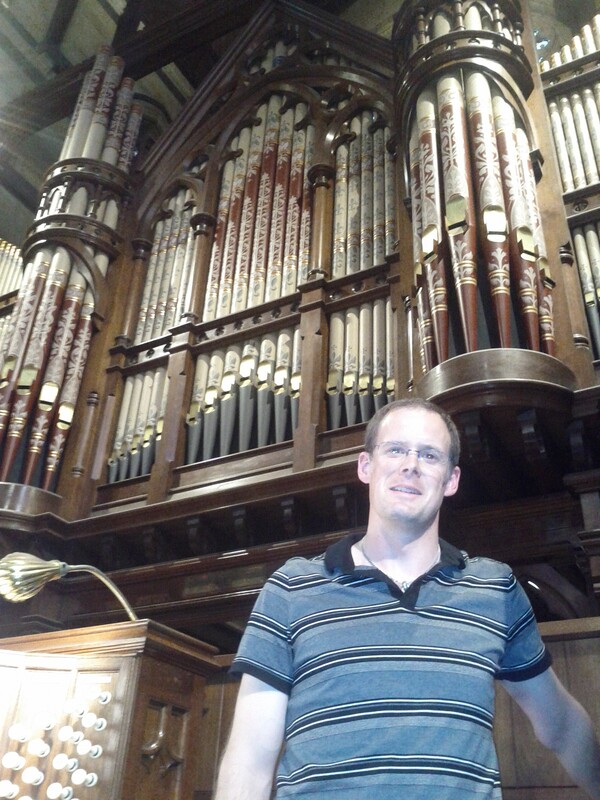
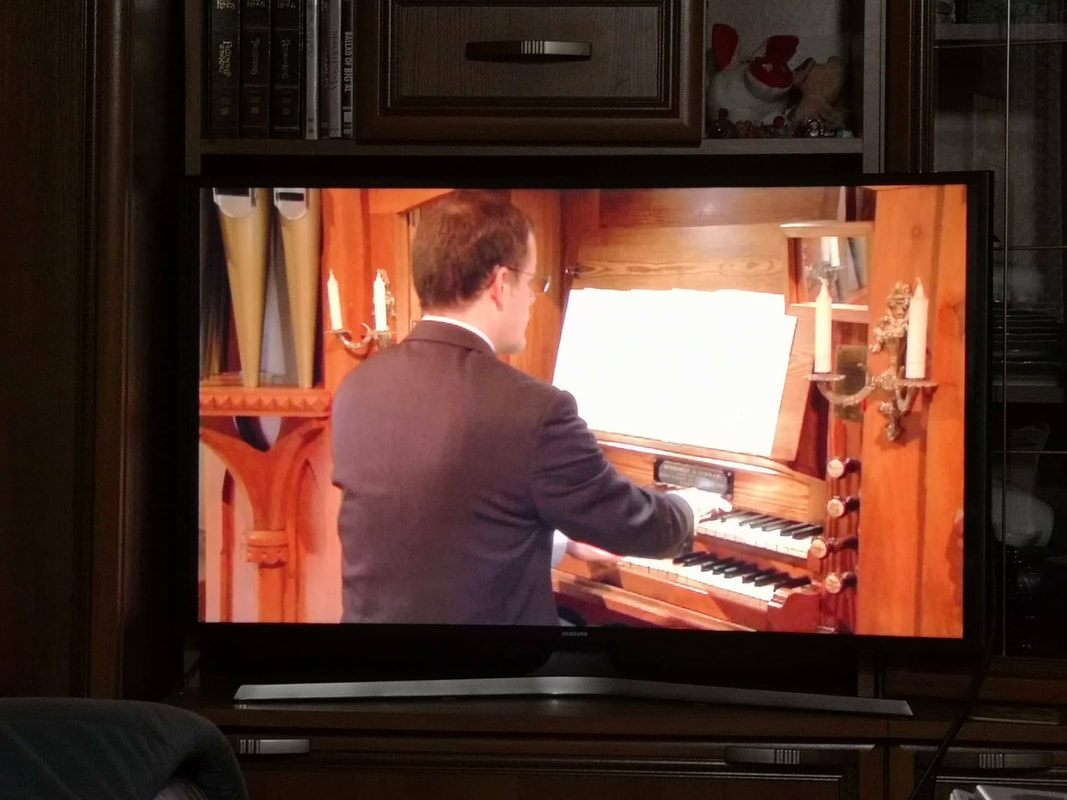
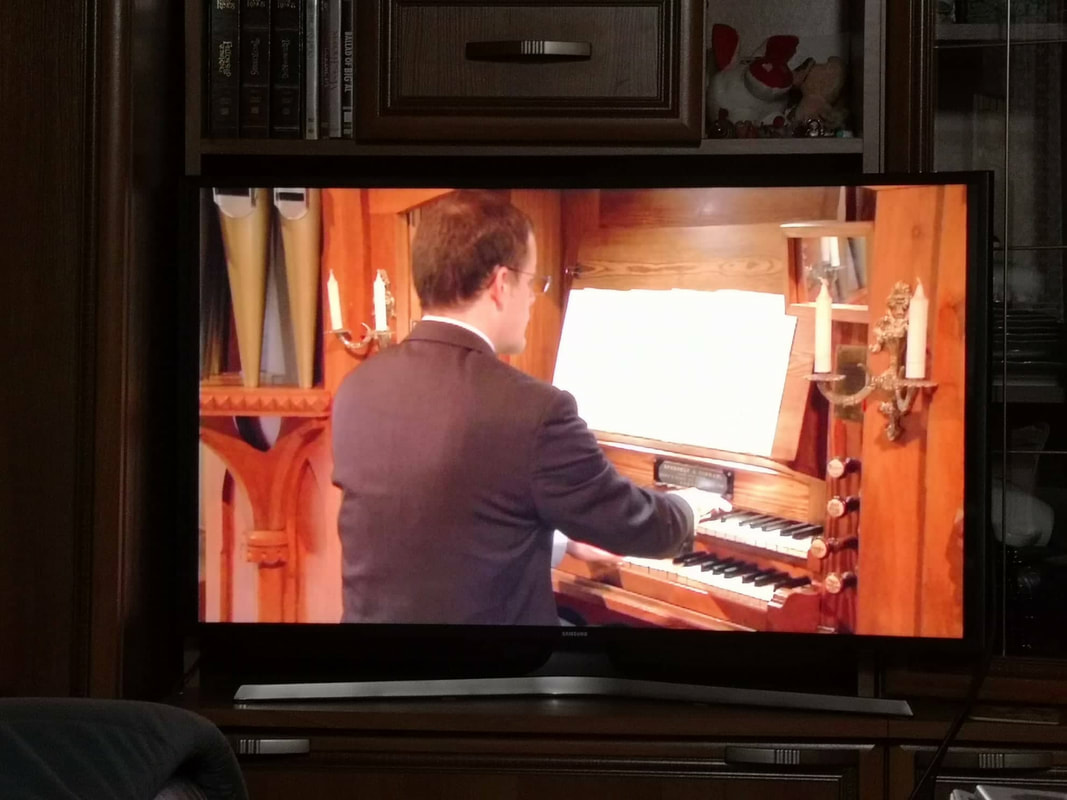
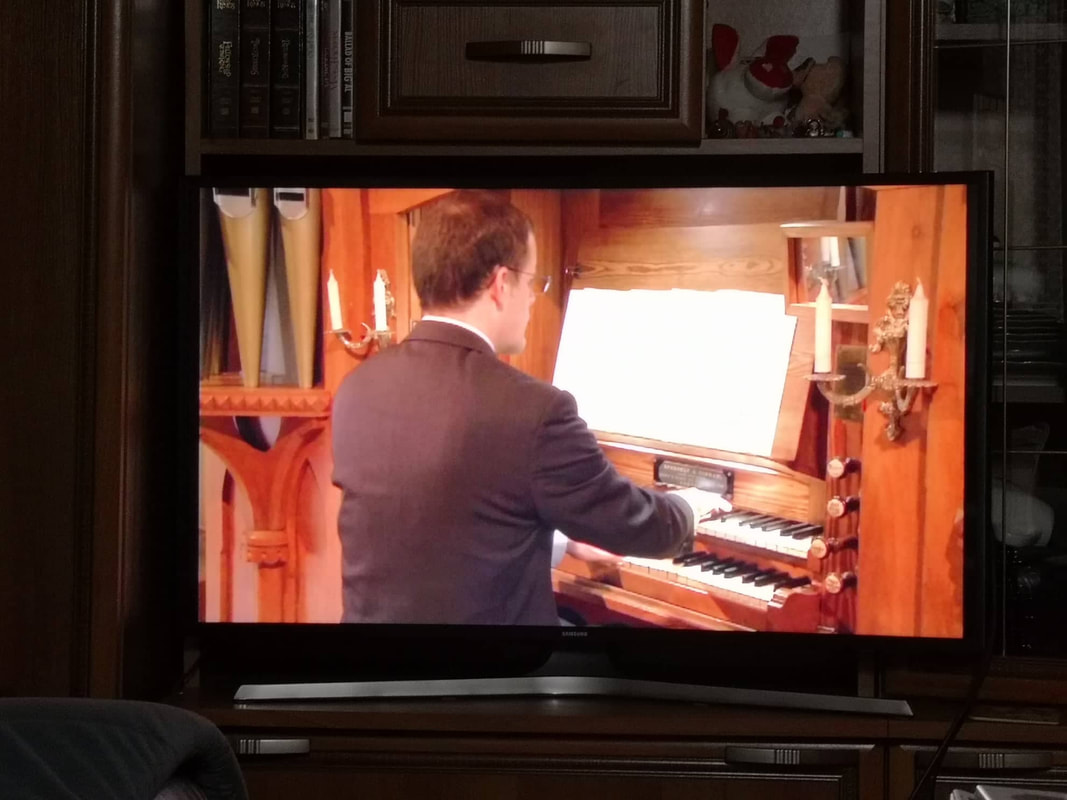
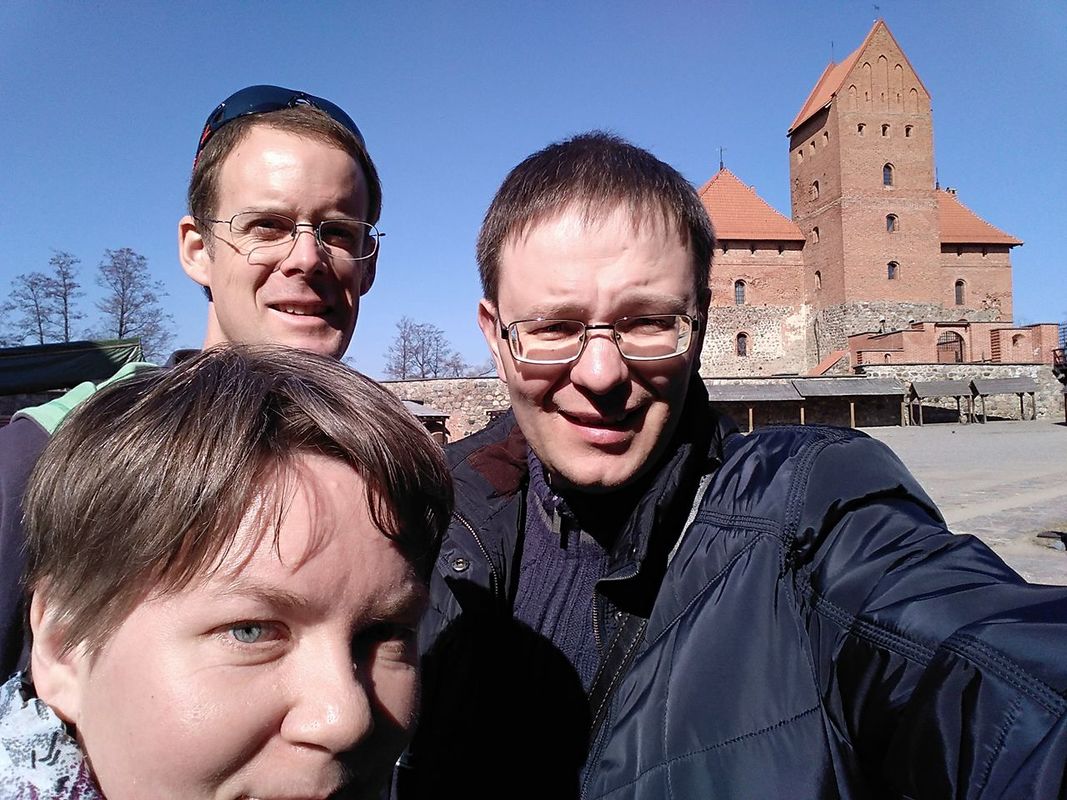
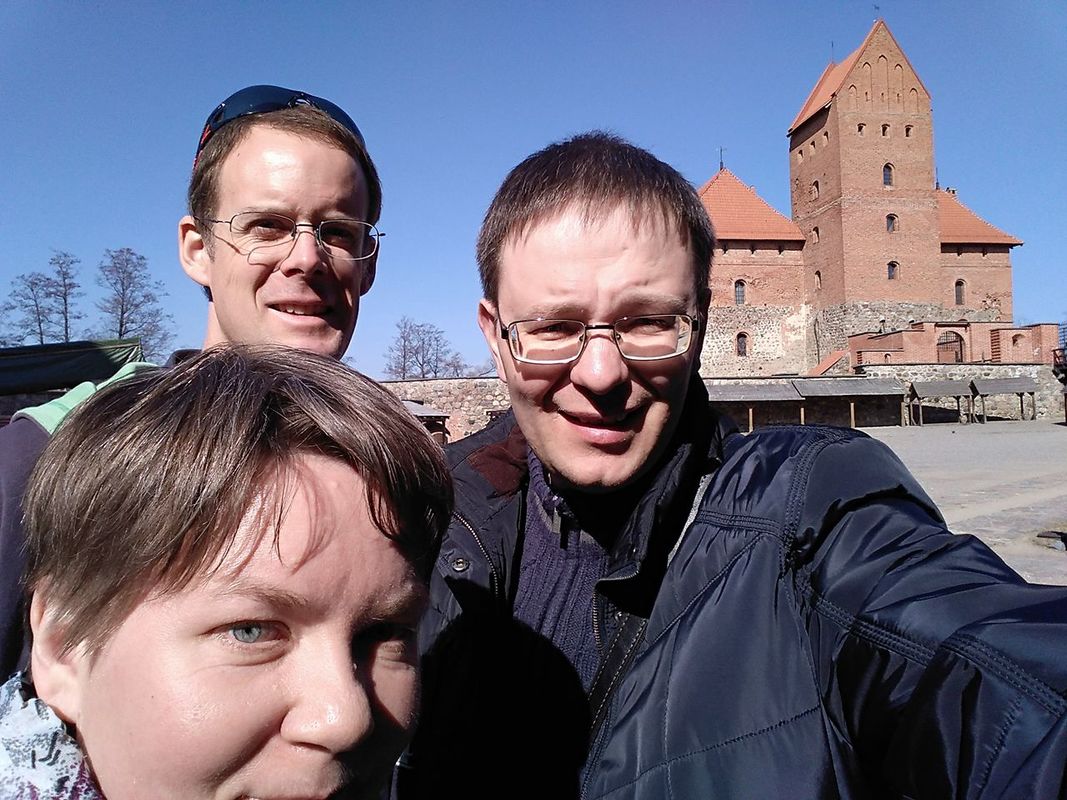
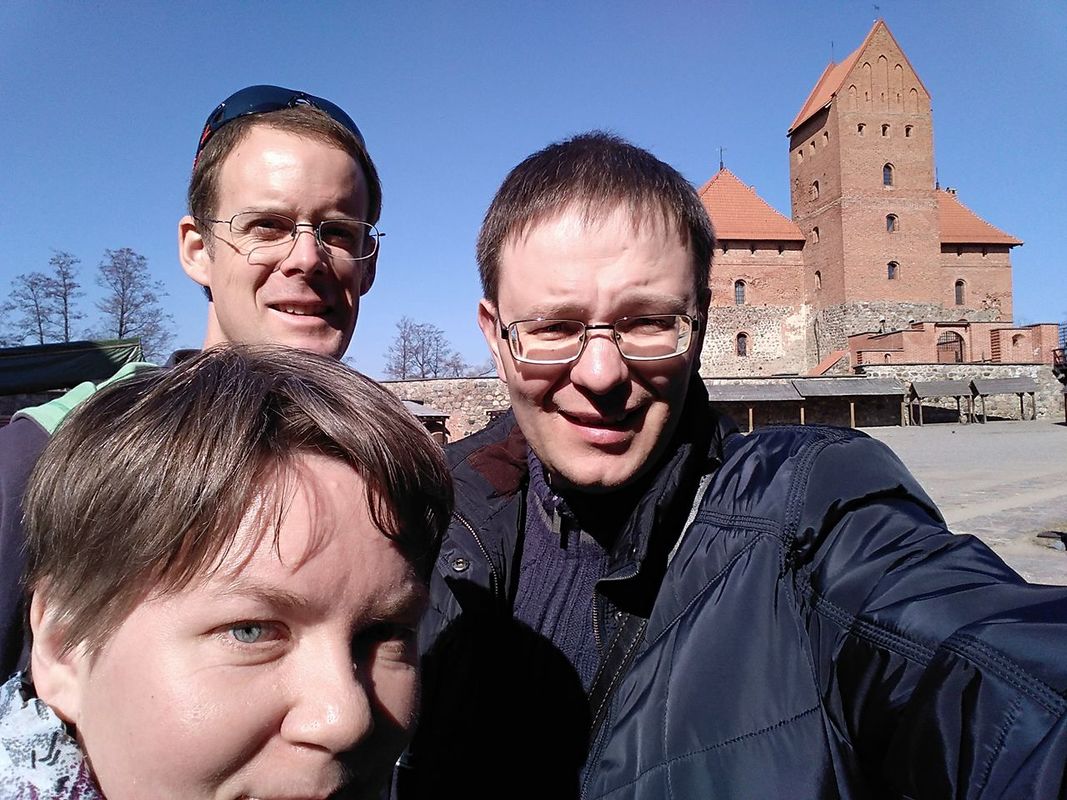
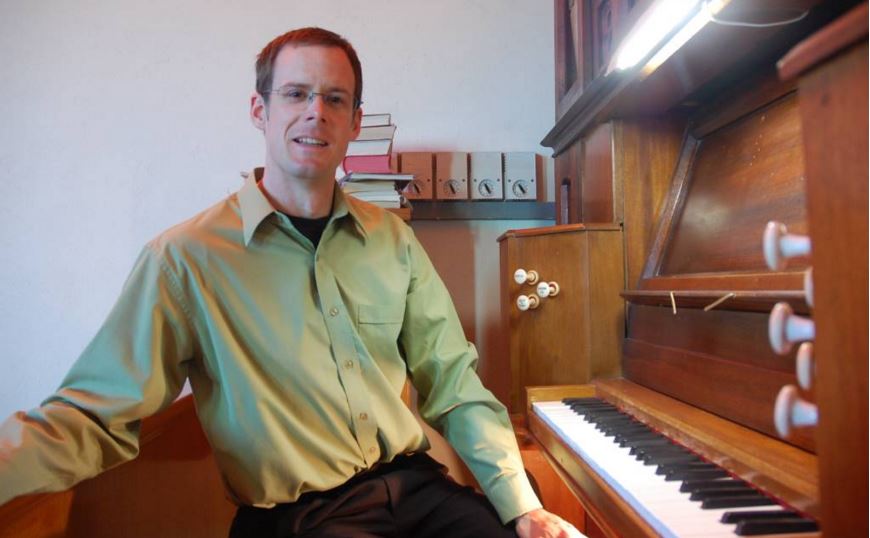
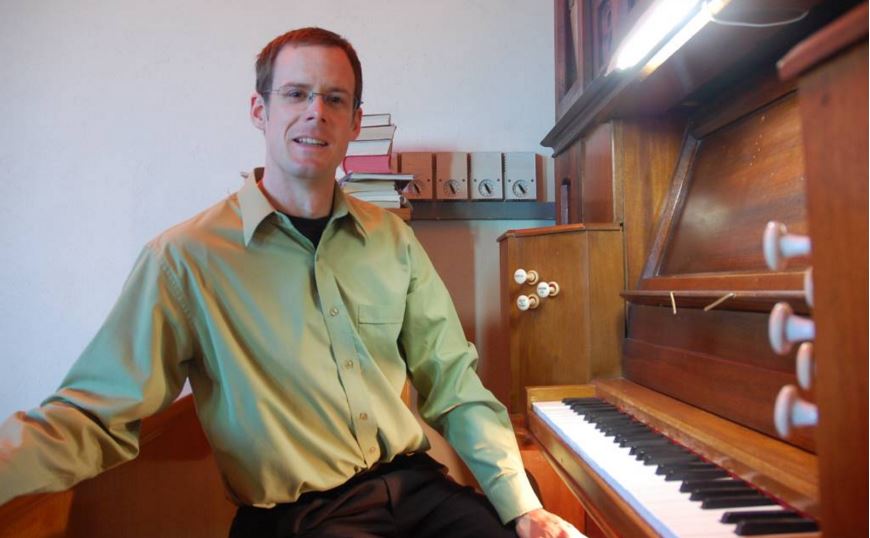
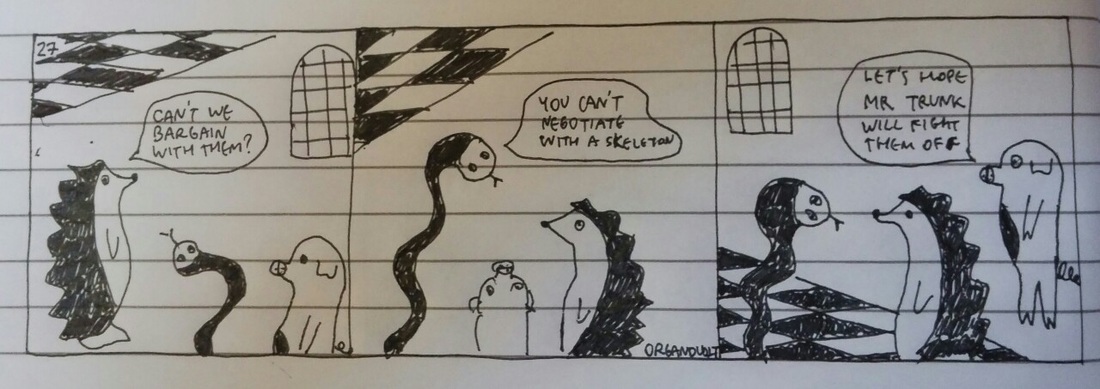
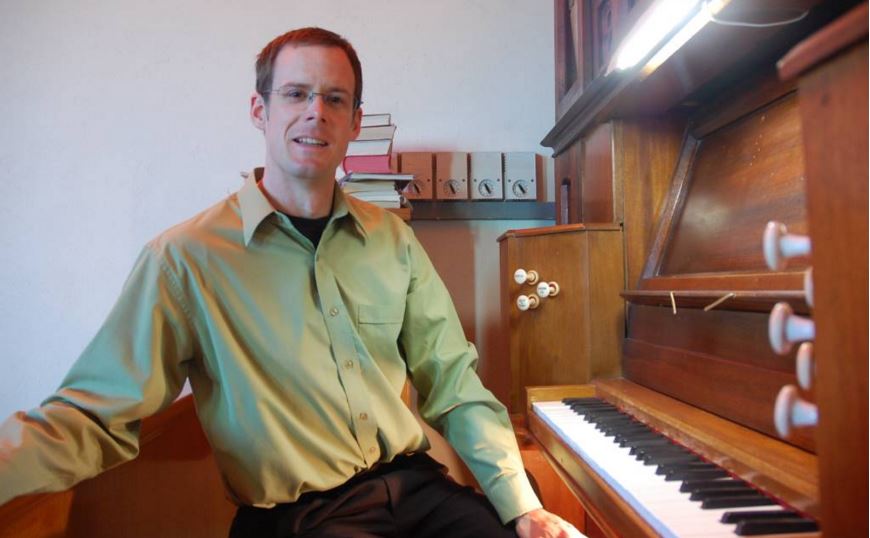
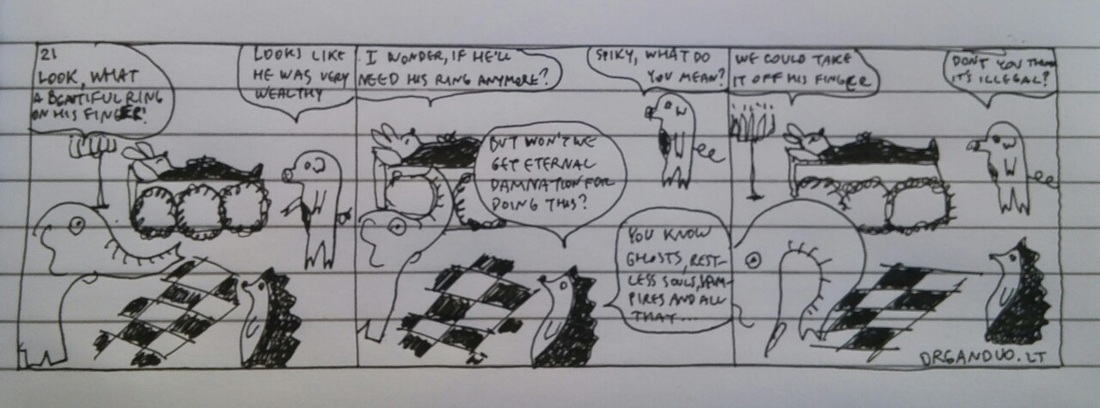



 RSS Feed
RSS Feed